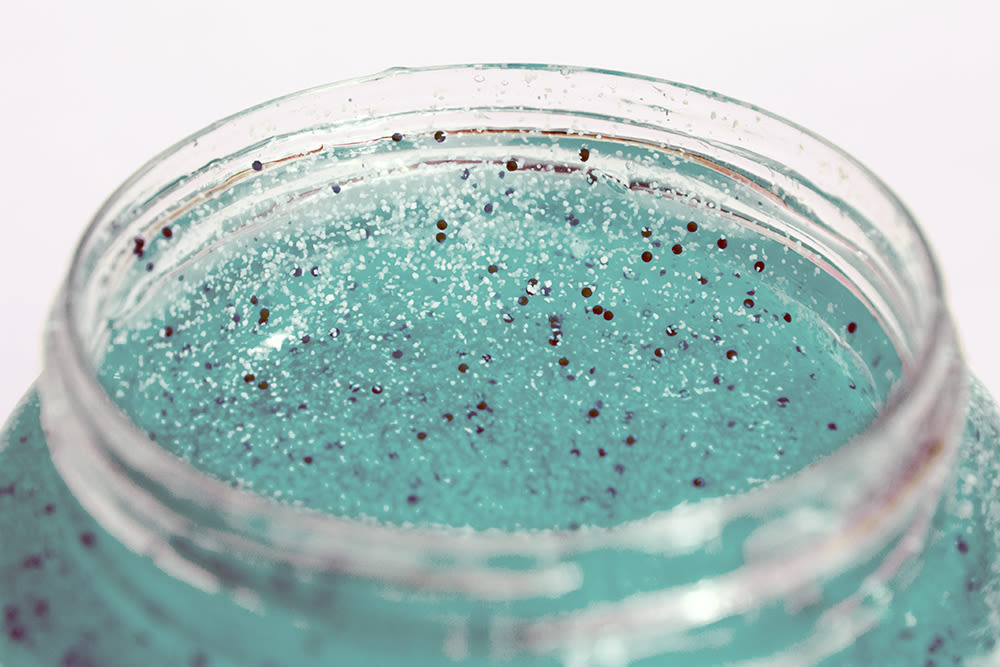On Monday, December 28, President Obama signed into effect the “ Microbead Free Waters Act,” which prohibits the sale of products that include microbeads in their formula and will effectively ban microbeads in the United States as soon as July 2017.
ITG tackled the topic of microbeads back in August—what does the ban mean for you, your products, and the environment? Read on below:
When microbeads were first invented, they were a cosmetic dream. The small, smooth beads were cheap to manufacture, and they offered the kind of soft exfoliation that’s hard to come by without spending a fortune. In terms of your skin, the perfectly spherical plastic balls are gentler than scrubs with ingredients like walnut shells in them, which can irritate the skin and cause tiny microabrasions. But in terms of the environment, they’re even worse than those plastic six-pack rings that everyone knows can strangle dolphins to death.
Microbeads became a national issue a few years ago, when Mother Jones, The New York Times, and others reported on their environmental damages. The problem with the beads is their material: They’re made of non-biodegradable plastic. And when they get washed down the drain after your weekly scrub, they end up dumped in local rivers and lakes. This is sort of like dumping a million plastic water bottles into the water—except it’s actually worse. Because unlike water bottles, microbeads are small enough that fish can swallow them. The plastic is toxic for the fish that are eventually eaten by other aquatic species and humans, who in turn are poisoned by the microbeads. Eventually, we all die from ingesting too much plastic. Wonderful.
Take a look in your bathroom right now, and you’ll probably find them: Microbeads are in everything—from face wash to body scrub to moisturizer to toothpaste (the kinds of products that people use on a daily basis). That means they get flushed down the sink in massive quantities where they end up polluting local water sources. So many microbeads are flushed down sinks in New York, according to state officials, that it has overwhelmed the state’s water-treatment plants. The plastic beads also make up a large part of the pollution in the Great Lakes, which means we’re slowly poisoning the world’s largest source of fresh water.
Washington, Oregon, Ohio, and Hawaii are considering legislation to phase out microbeads. California, Minnesota, Connecticut, Maine, Colorado, Indiana, Maryland, Illinois, New Jersey, and Wisconsin have passed legislation that prohibits the sale and manufacturing of microbeads. Congress is currently working to mandate “ microbead-free waters” nationwide, following in the footsteps of the Netherlands, where they plan to eliminate microbeads in Dutch cosmetics by 2016. [ed note: the Microbead Free Waters Act has passed the House of Representatives and Senate, and was signed into effect by President Obama on December 28, 2015]
There have been changes within the industry, too: Lush removed all microbeads from their products last summer and recently started a social media campaign encouraging others to #BantheBead. Bigger companies—including Procter & Gamble, Johnson & Johnson, L’Oréal, and Unilever—followed suit in starting to phase out the beads from their products (Unilever’s Dove already removed microbeads from its soaps earlier this year).
Other cosmetic companies have tried to come up with synthetic biodegradable alternatives, but experts warn that, without adequate testing, we don’t know if these beads will disrupt the marine ecosystem in other ways. After all, everything is biodegradable eventually—but if the microbead alternatives can’t biodegrade within a reasonable amount of time, then what’s the point?
There are already so many natural exfoliants worth springing for in lieu of microbeads like Arcona’s Cranberry Gommage, which uses jojoba beads, or Lush’s lovely, limited-edition Life’s A Beach Body Scrub, which goes au naturel with sea salt and sand. There are also great nonabrasive exfoliants like Dermalogica's Gentle Cream Exfoliant and AmorePacific's Treatment Enzyme Peel, both of which use acids and natural fruit enzymes to slough off dead skin. You’ll still glow, I promise—and you’ll also save the planet along the way.
—Arielle Pardes
Photographed by Tom Newton.
Good for the earth and your skin, 32 all-natural skincare products to consider. Read more from Water Week here.

